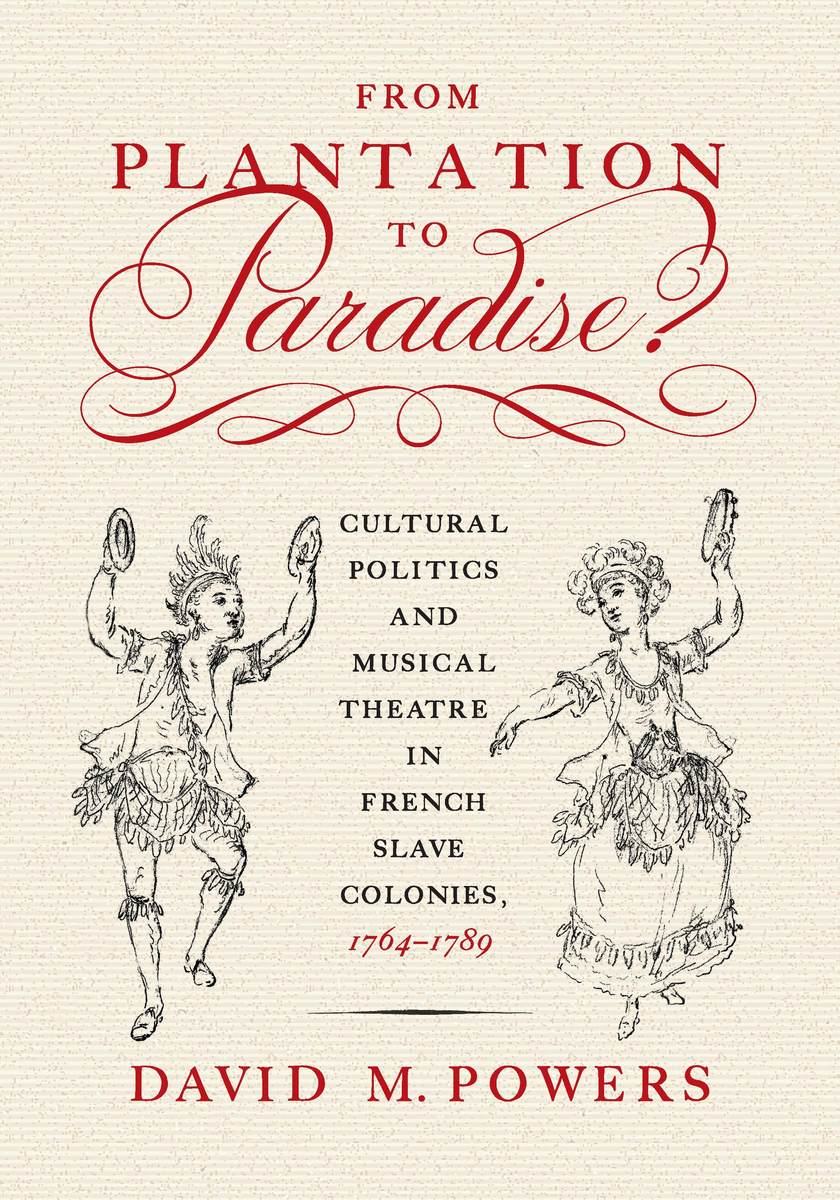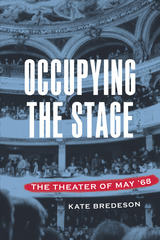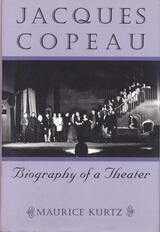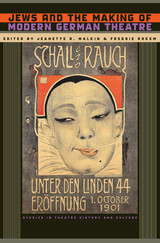From Plantation to Paradise?: Cultural Politics and Musical Theatre in French Slave Colonies, 1764–1789
Michigan State University Press, 2014
eISBN: 978-1-60917-410-1 | Paper: 978-1-61186-120-4
Library of Congress Classification PN2633.P69 2014
Dewey Decimal Classification 792.094409033
eISBN: 978-1-60917-410-1 | Paper: 978-1-61186-120-4
Library of Congress Classification PN2633.P69 2014
Dewey Decimal Classification 792.094409033
ABOUT THIS BOOK | AUTHOR BIOGRAPHY | REVIEWS | TOC | REQUEST ACCESSIBLE FILE
ABOUT THIS BOOK
In 1764 the first printing press was established in the French Caribbean colonies, launching the official documentation of operas and plays performed there, and marking the inauguration of the first theatre in the colonies. A rigorous study of pre–French Revolution performance practices in Guadeloupe, Martinique, and Saint-Domingue (now Haiti), Powers’s book examines the elaborate system of social casting in these colonies; the environments in which nonwhite artists emerged; and both negative and positive contributions of the Catholic Church and the military to operas and concerts produced in the colonies. The author also explores the level of participation of nonwhites in these productions, as well as theatre architecture, décor, repertoire, seating arrangements, and types of audiences. The status of nonwhite artists in colonial society; the range of operas in which they performed; their accomplishments, praise, criticism; and the use of créole texts and white actors/singers à visage noirs (with blackened faces) present a clear picture of French operatic culture in these colonies. Approaching the French Revolution, the study concludes with an examination of the ways in which colonial opera was affected by slave uprisings, the French Revolution, the emergence of “patriotic theatres,” and their role in fostering support for the king, as well as the impact on subsequent operas produced in the colonies and in the United States.
See other books on: Cultural Politics | Musical theater | Opera | Paradise | Theater and society
See other titles from Michigan State University Press
























